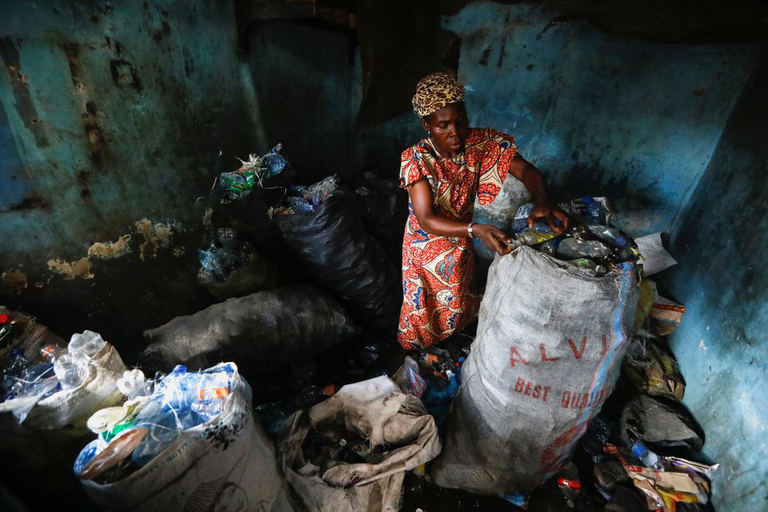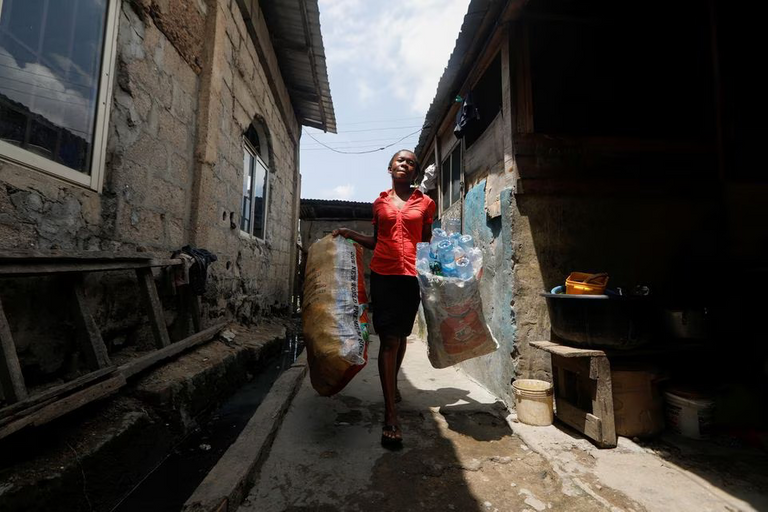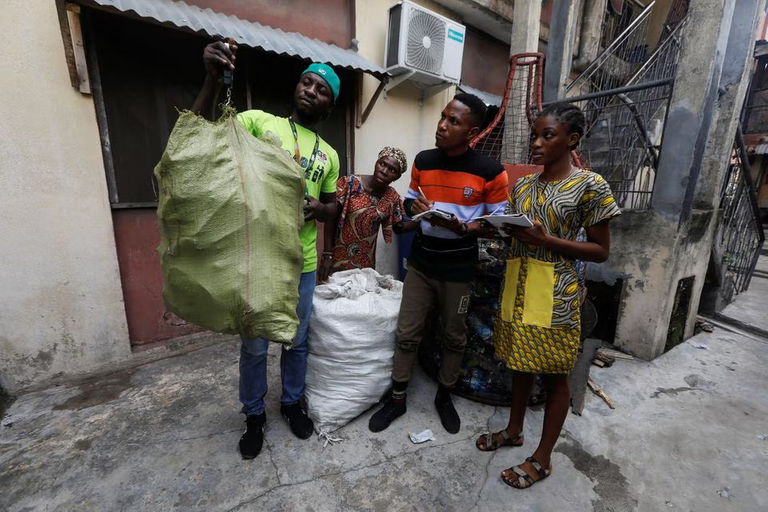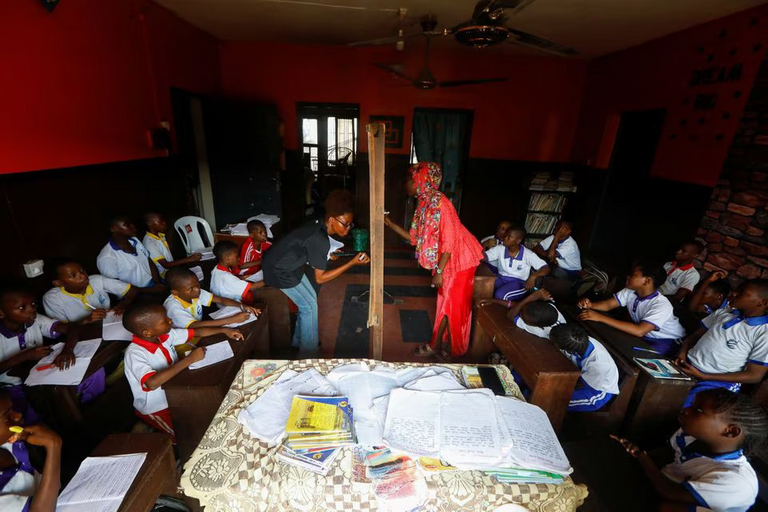Nigerian parents pay school bills with recyclable waste
Hello Deep Dives platform! It's amazing to give you updates on how scavenging and recycling is truly changing lives in Nigeria and all over the world. Good morning!

Life in Nigeria is becoming harder and tougher as the day goes by and this is as a result of the dwindling economy. It's a truism that Nigeria imports almost everything used in the country, so this has brought inflation and high cost of living.

The most affected apart from the unemployed youths are single parents, most women who rally around to put food on the table for their family. My today's post will focus on a woman who is using recyclable waste to pay her child's school bill.
Nigerian fourth-grader Fawas Adeosun often used to get sent home from school through the gritty streets of Lagos because his mother, Fatimoh, had not paid his fees, until he enrolled in a different school offering a novel solution.
My Dream Stead school, in the sprawling, impoverished Ajegunle neighbourhood where the Adeosuns live, is one of 40 low-cost schools in Nigeria's commercial capital that accept recyclable waste as payment.

For the past four years, a local environmental organisation called African Cleanup Initiative has been collecting bottles, cans, drink cartons and plastic containers brought into the schools by parents and selling them to recyclers.
The proceeds of the sales pay for teacher salaries, children's uniforms, books and pens, among other expenses.
The scheme aims to reduce the number of children out of school as well as the amount of rubbish on the streets of Lagos, said Alexander Akhigbe, founder of the environmental group.
This indeed is the way forward if we want to see the environment clean as well as encourage others to earn from their scavenging activities in Nigeria and other parts of the world.
Waste management is very important to the health and wellness of the people and creating initiatives like this is a way forward in reducing the health hazards that poor waste management has caused Nigeria.
Tuition fees at My Dream Stead stand at $130 per year and the school is expanding into a second apartment block to accommodate its 120 pupils. Only seven children were enrolled when it opened in 2019.

Some mornings, Fatimoh and Fawas walk to the school together with bulging sacks of rubbish over their shoulders. The waste is weighed on school premises and its sales value added to Fawas' account.
Finally, schools such as this should be established by government and private individuals to help poor families who can engage in gathering recyclable wastes to enroll their wards in school. This will also reduce the numbers of uneducated in the society as well as help in clean up for the betterment of the society. This truly is a way forward and should be encouraged by poor families. Scavenging is an occupation and could give you above $10 per day, which if calculated is above the minimum wage paid by the Nigerian government.
Thanks!
Reference: